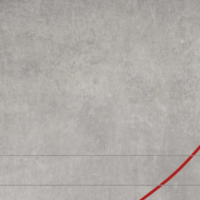Signals of change for the future
Zuzanna Skalska was one of the keynote speakers at the Marketingcongres Spring Edition 2022. She is someone who has an extensive background in design and is currently translating her knowledge into actionable innovative programmes. She works closely with leaders for radical innovation and looking for signals of change.
Here are 4 key take-aways from her talk ‘Signals of change for the future’.
Signals of Change
The word ‘Trends’ is everywhere, not only in the media but also in marketing books, blogs and social media. We live in a day and age where everyone wants to categorize things which makes it easier for people to be organized for mass consumption. However, the word ‘Trends’ is actually somewhat of a has-been.
What could be ‘on trend’ today, could be dead tomorrow. So instead, look out for Signals of Change, bigger shifts in (cultural) movements. Another big tip to pick up on Signals of Change is to look at what is going on in other businesses. What kind of product development are they investing in? What kind of new materials are they using? It could be relevant for your business, here is where the future lies.
Weconomy
The world is currently operating from a me-economy perspective. This means that a company will create a product, using its own employees and sell it to consumers. The end purpose is to make shareholders happy and by making profit.
However, society is shifting more and more towards a Weconomy. This means that a company should have multiple purposes besides just making profit. Even employees of the companies want more than just a paycheck. They want their careers to have meaning and that reflect their personal values.
” The Weconomy tackles things differently as there is an increasing demand that companies have to do more than just make profit. “
This means that companies should be doing more than what they are currently doing, going from consumer choices, being fair to their employees, maintaining an ethical supply chain, giving back to local communities. It will boost employee engagement and productivity, boost consumer engagement and finally inspire brand fanatics.
Human Experience
Consumers don’t want to just buy products anymore. They want to engage in meaningful stories. This is another signal of change. One great example of a brand offering this to its consumers is The North Face. This iconic brand opened one of the coldest pop-up stores in Changbai mountain as of the beginning of January 2022. It is located in one of the coldest areas in China and in order to get there you had to go through the cold, with temperatures that could drop to -30° whilst being an expert skier too.
This is a perfect example of how people don’t want to just buy products anymore, but want to engage in meaningful stories.
Ecology is not a trend
” Ecology is a conditio sine qua non.”
Consumers face a grown concern about the climate change and how companies have an impact on the deterioration in the environment. It is necessary to align your business strategy to sustainability targets. This is vital for the survival of our planet and furthermore, sustainability and ethical issues are also key drivers for consumers.
Companies have the opportunity to invest in several solutions such as reducing greenhouse gas emissions, investing in renewable energy, using sustainable materials and so on.
For example, the iconic brand Adidas has committed to set-up a greener supply chain. Burberry has committed to be climate positive by 2040. Ikea is committed to using only renewable energy in its value chain.
As you can see, these companies are taking strides to committing to their sustainable goals and everyone should follow their examples and make commitments to a more ecological world.


